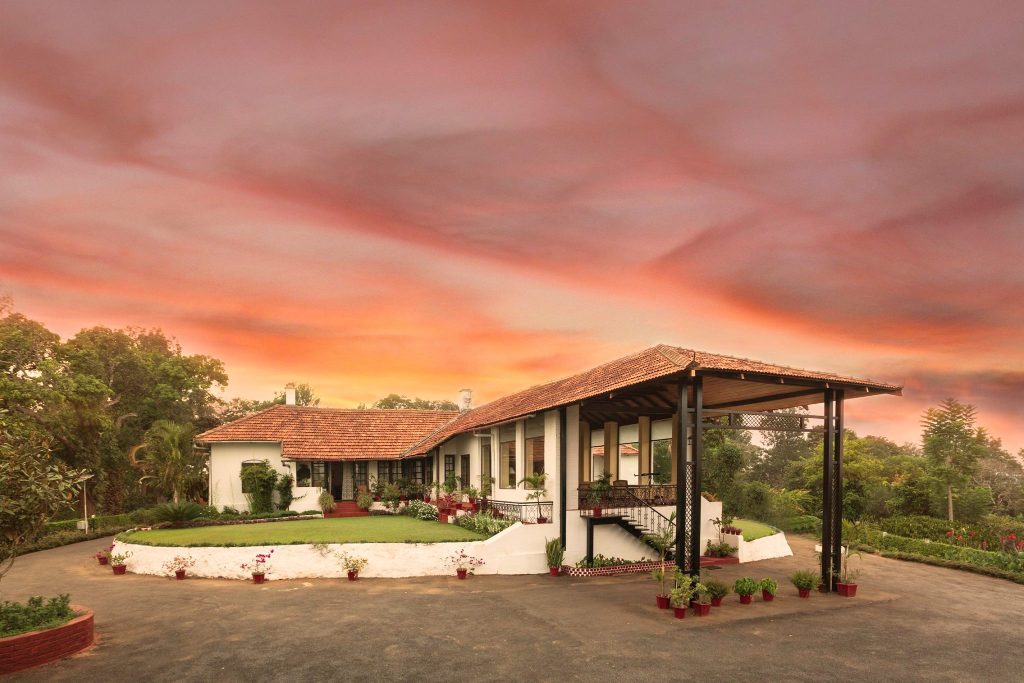Skift Take
On March 1, Taj Hotels will start taking bookings for its official foray into homesharing with its new brand, Amã, with nine bungalows. It's further proof of the Skift Megatrend that in hospitality, "everything is converging."
Taj Hotels boss Puneet Chhatwal continues to implement a strategy of diversifying away from luxury hotels. The latest move is to enter alternative accommodations with an experiential flavor.
On March 1, Taj Hotels will begin taking bookings for its official foray into home sharing with its new brand, Amã Trails & Stays. Amã means “home” in Sanskrit.
To start, it will offer nine heritage bungalows that have been managed for years by Tata Coffee, a sister brand of the Tata Group conglomerate that owns Taj parent Indian Hotels Company Limited. For example, guests can stay at a bungalow on a coffee plantation atop the Western Ghats in Coorg, India. The rental has a mix of Victorian furniture and modern amenities like wireless internet.
The company has a plan to develop a pipeline comprising bungalows across the country to offer as vacation homes. It aspires to list about 100 properties by the end of 2020.
Taj claims to be India’s largest traditional hospitality company by revenue. Its parent, Indian Hotels Company, has dabbled in vacation homes before. It has owned two bungalows in Goa, for example, that it will make available for booking under the Amã brand at a later time.
Members of the loyalty program Taj InnerCircle will be able to earn and redeem points for stays at the rentals. The Amã rentals will eventually be bookable on the Taj Hotels website and mobile app — though the brand wasn’t listed on the Taj or Indian Hotels Company sites as of this writing.
Shifting Strategy
A year ago — shortly after he became CEO of Taj parent Indian Hotels Company — Chhatwal revealed an ambitious strategy to reshape the company by 2022. His five-year plan was to “reimagine” the company’s “service, brandscape, and portfolio.”
While he didn’t spell that entering alternative accommodations would be part of that effort, the move makes sense. One of his goals is to make the company, which has 32,000 employees, asset-light, with only 40 percent of the company’s assets owned or leased by the company by 2022, down from 65 percent today.
A few other hotel companies have been embracing homesharing with alternative accommodations, such as Marriott’s experiment with a few hundred Tribute properties in major European cities.
Yet not every industry move has been successful. AccorHotels has struggled with its luxury home rental brand Onefinestay. Hyatt Hotels & Resorts struggled with Oasis.
Taj’s move is also further proof that one of the travel megatrends of our time is that “everything is converging in hospitality.”
Chhatwal isn’t giving up on hotels, of course. In the past 12 months, Taj has signed 20 new hotels, including ones in ambitious foreign cities like Dubai and London, adding to the nearly 100 Chhatwal inherited. That translates into adding 3,000 hotel rooms.
Skift India Report
The Skift India Report is your go-to newsletter for all news related to travel, tourism, airlines, and hospitality in India.
Have a confidential tip for Skift? Get in touch
Tags: alternative accommodations, india, short-term rentals, taj hotels
Photo credit: The Cottabetta Bungalow, shown here, was once the home of the director of Tata Coffee, but is now a vacation home in Coorg, India. It's one of the properties now bookable via the new brand Amã, from Taj Hotels. Plantation Trails by Tata
